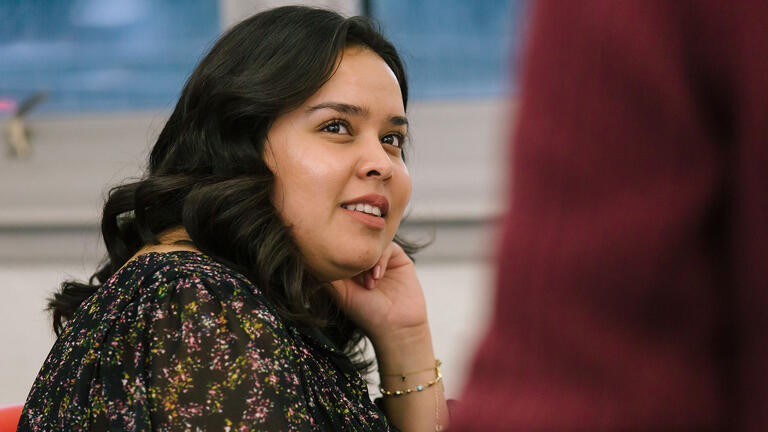
Counseling Psychology, Marriage & Family Therapy Concentration, MA
Program Overview
The MFT program curriculum blends rigorous and collaborative classroom learning with action through community mental health fieldwork opportunities as diverse as the city we call home. Students can study at the San Francisco, Sacramento, Santa Rosa, South Bay, or East Bay campuses.
Program Highlights
- An intensive two-year format (SF campus only) as well as a less condensed three-year format
- In-depth coursework in community mental health where students have an opportunity to provide services and interact with consumers
- A focus on a community mental health recovery and wellness approach to serving clients and providing treatment options
- A curriculum that attends to the mental health needs of diverse cultures and communities
- Emphasis on incorporating evidence based practices and client strengths
- Collaborative cohort learning that facilitates future support, resources, and continued networking opportunities after graduation and licensure
- Option to study in San Francisco, Sacramento, Santa Rosa, the South Bay, or the East Bay.
- University-wide supportive services and opportunities to collaborate with instructors
- Many program instructors that are practicing mental health clinicians
- Comprehensive clinical fieldwork placement and supervision
- Courses in theory, counseling, skill development and trauma and crisis counseling to support growth as future therapists
Program Delivery
- 60-credit program with classes in the fall, spring, and summer semesters
- Cohort-based model with fall entry dates
- Education and training consistent with California Board of Behavioral Sciences (BBS) educational requirements for marriage and family therapists and professional clinical counselors
- SF campus: In the Fall and Spring semesters, classes are offered on weekdays late afternoon (3:45–6:15 p.m.) and evening (7:20–9:50 p.m.)
- The summer semester (late May through month of June/early July) is an intensive 6-week schedule with classes offered Monday-Friday (5:30-9:00 p.m.) and Saturday (8:00 a.m.–5:00 p.m.)
- Santa Rosa, Sacramento, and San Jose campuses: Late afternoon (4–10 p.m.), one day a week with some Saturday classes
- During their final year in the program, students enter a traineeship with Bay Area community-based and school-based partners. These organizations emphasize their services, mission, and training, providing students with important industry information and opportunities to apply for internships.
Program Formats
Students can choose between the MFT's 3-Year (8 semester) program and an accelerated, more intensive 2-year (7 semester) program. The 2-year intensive program is at the SF campus only.
3-YEAR FORMAT
- Well suited for students who might not have a psychology or mental health background.
- Would be a good fit for students who would like a program that is less accelerated.
2-YEAR FORMAT
- Well suited for students who have a background in psychology, social or mental health services. This may include educational background, and/or volunteer or work experience in the field or a related area.
Loading...